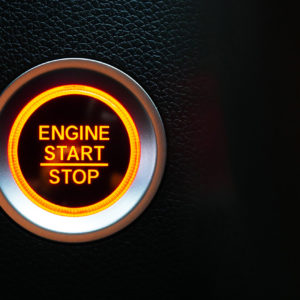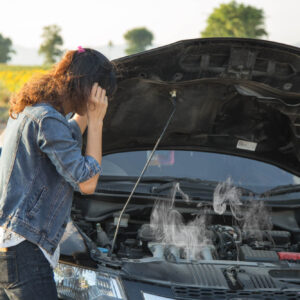Sitting in an idling car certainly sounds better than waiting in a stuffy cabin with the air conditioning (A/C) off, but letting your vehicle idle for too long can actually damage your car. In instances where you can avoid letting your car idle, we suggest turning off your engine and restarting it later. Your car might be able to idle for a long time, but doing so can leave your daily driver in poor condition.
How Long Can a Car Idle?
There’s no specific time limit for how long you can leave your car idling. Most modern vehicles can idle until they run out of gas, which means you can sit in your car and let it idle for hours. On average, a small vehicle will burn around one liter of fuel per hour while idling, while larger vehicles will consume almost two liters per hour.
However, this is under the assumption that your vehicle is in good condition. If there are any issues with the engine, you might not be able to idle your car for long.
Letting your car run without moving can also strain the battery. Having the headlights on high beam, the A/C on blast, and the radio turned on as you sit in the car can also drain the battery faster.
How Long Should a Car Idle?
Just because you can let your car idle for hours doesn’t mean you should. In fact, the Environmental Protection Agency (EPA) and most manufacturers say that you shouldn’t idle your car for longer than 30 seconds. This is because idling your car can release a considerable amount of carbon dioxide, which is bad for both the environment and your health.
Most states also have strict anti-idling laws that limit how long you can leave your vehicle idling. In Massachusetts, for example, vehicles aren’t allowed to idle for more than 5 consecutive minutes. In Washington, D.C., you can only idle for less than 3 minutes, or you could be fined up to $5,000.
Is It Bad To Leave Your Car Running?
Idling for a short period shouldn’t be an issue, but excessive idling can take a toll on your vehicle. Here are the common effects of excessive idling:
Increased Fuel Consumption
As long as the engine is running, it’s still burning fuel even if your vehicle isn’t moving. This leads to an increase in fuel consumption, which also means you’re spending more on gas. Your vehicle also produces more carbon emissions that unnecessarily harm the environment.
Rich Air-to-Fuel Mixture
An idling engine is likely to use more fuel than air, causing the engine to run rich. Aside from poor fuel efficiency, this can also cause carbon deposits to build up from all the excess fuel. Over time, these carbon deposits can clog and damage the catalytic converter.
Premature Engine Wear
When an engine is idling for too long, oil and coolant aren’t flowing around the engine efficiently. This results in poor heat management, straining several engine components, such as the cooling fans, electric water pumps, and catalytic converter.
In older engines, fuel might end up mixing with the oil. Contaminated oil won’t be able to lubricate engine parts properly, leading to increased friction and overheating.
Safety Tips When Idling Your Vehicle
Here are helpful tips on how to keep your car in good condition when you can’t avoid idling from time to time:
Follow a Regular Maintenance Schedule
Idling isn’t always avoidable, which is why it’s important to keep up with your vehicle’s regular maintenance schedule. Regularly changing the air and fuel filters, inspecting the spark plugs, and checking other systems ensure that long idling periods cause less damage.
Monitor the Temperature Gauge
If you can’t avoid idling for longer than a few minutes, keep an eye on the temperature gauge to make sure your engine doesn’t overheat. Idling won’t necessarily cause overheating, but there’s a greater chance of it happening if there’s an issue with the cooling system. Low coolant levels and a faulty thermostat can also cause your engine to overheat while idling.
Turn Your Vehicle Off for Short Stops
Most people think restarting their engine will damage the starter, but the starters on modern vehicles aren’t likely to wear just from that. If you’re in a safe area with parking, it’s best to just park your car and shut it off.
Idling for more than ten seconds actually uses more fuel than restarting your engine. By turning your vehicle off, you’ll minimize fuel consumption and carbon emissions.
Avoid Idling To Warm Up the Engine
Instead of letting your car idle to warm up the engine, it’s best to drive for a while instead. Most vehicles warm up faster when driving rather than simply idling. This way, you’re also less likely to waste time before getting to your destination.
What Does Idling Mean?
Idling occurs when the engine is running but the vehicle isn’t moving. As much as people try to avoid idling, there are certain instances when it’s bound to happen. For example, idling typically happens when drivers are stuck in heavy traffic, in line at the drive-through, or waiting for a passenger to enter the vehicle.
Any information provided on this Website is for informational purposes only and is not intended to replace consultation with a professional mechanic. The accuracy and timeliness of the information may change from the time of publication.































